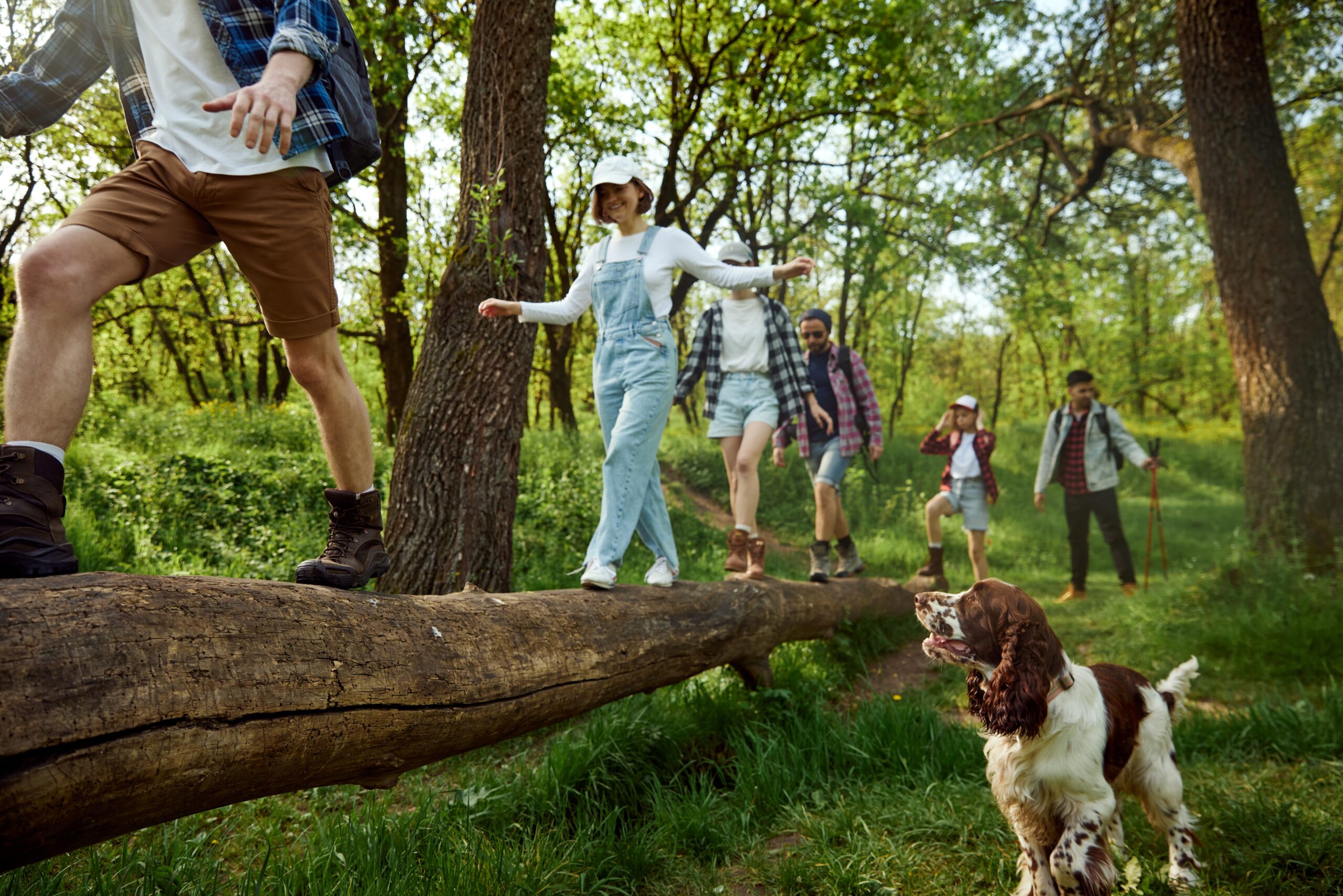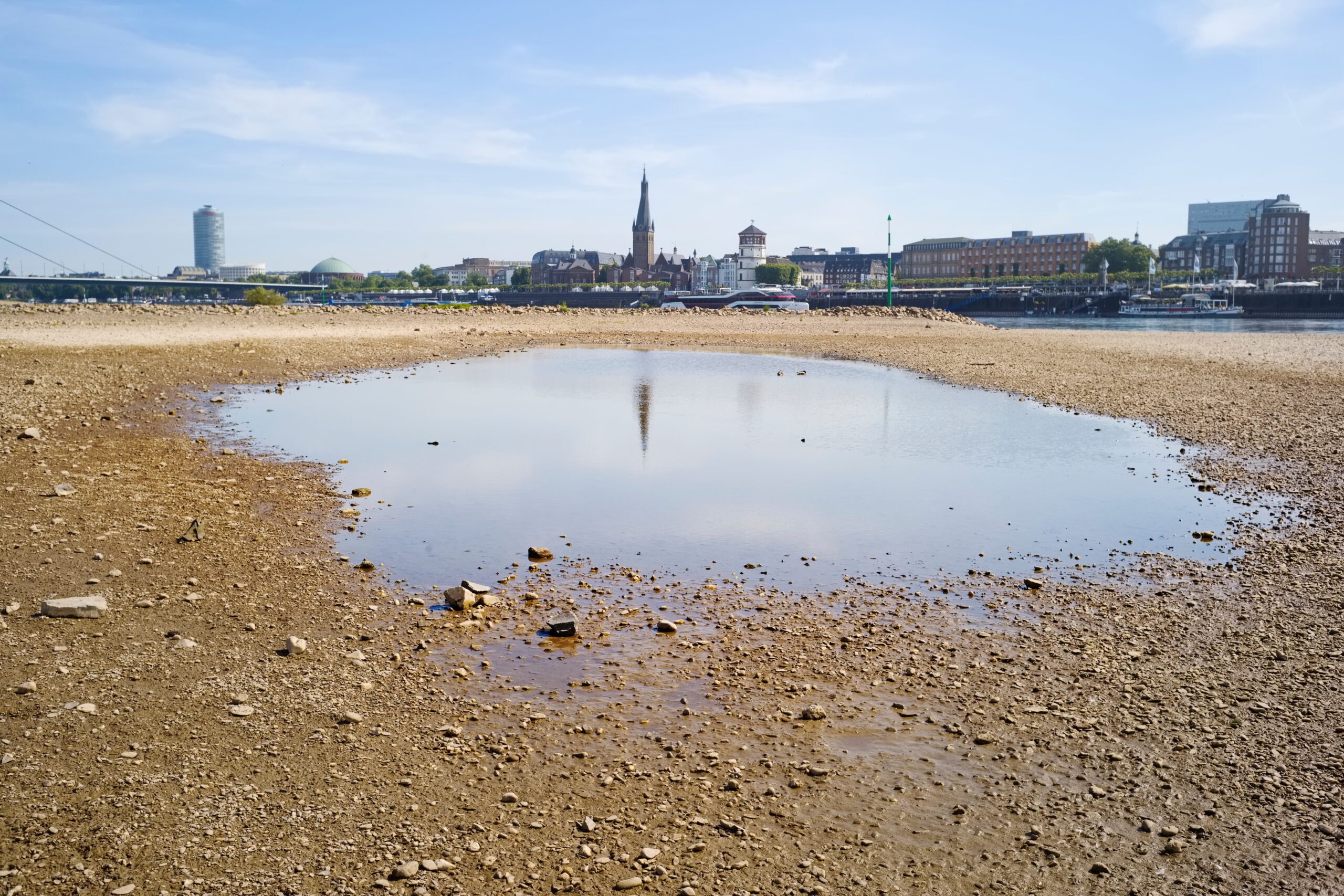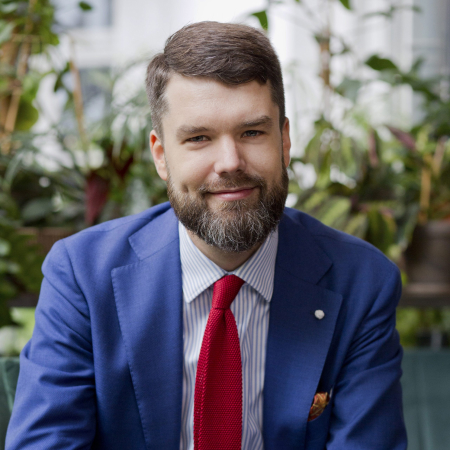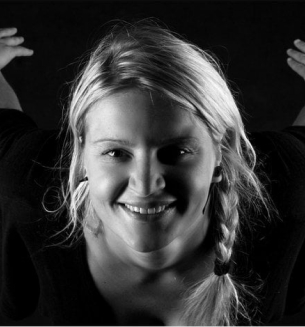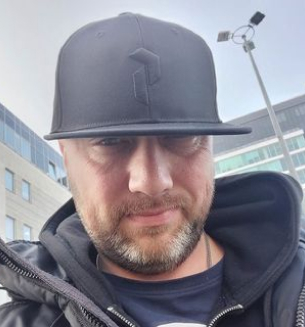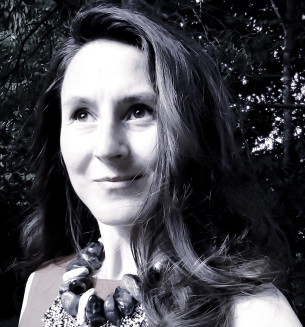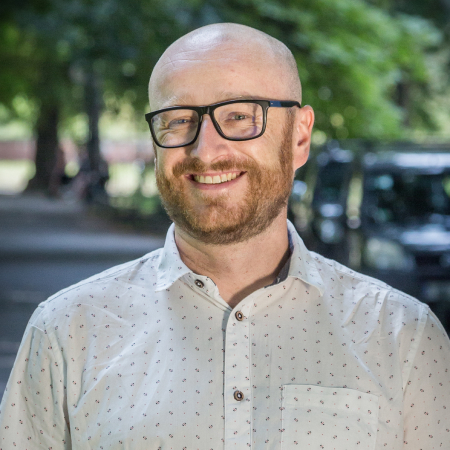
What do you think of the modern world?
I think about it with a mixture of enchantment, fascination and love, rage, fear, mourning and great hope.
Let us start with enchantment.
I am enchanted by the beauty and the incomprehensible complexity of the world, totally surpassing our mental capacity. Newton wrote that what we know is like a single drop in the ocean of our ignorance. In spite of the fact that we have learnt quite a lot since his times and we have collected more of these drops, yet the proportions have not changed that much. The ocean is still the ocean. This is particularly clear in biology. I know quite little about how my computer works, but there are people who know all the details about it. If I cared about it, I could learn them too. Whilst sitting in a forest or in a meadow I know that nobody in the world will be able to understand everything that is happening around. Thanks to centuries of studies we have some idea about fragments of this puzzle, but the whole remains completely beyond our reach.
Thence the fascination?
A scientific study or simple observation of nature is like a continuous journey at the edge of a mystery, drawing new micro-drops from this huge undiscovered ocean. This is completely fascinating! And the thought that I am a part of this mystery, an eyelet in the net, tightly connected to the others by physics, chemistry and biology, is completely unique. When I think about all of this, or when I do not think but just sit in a forest, in a meadow, in a bog or by the river and stare at the life going on around me, I have this… Soothing sense of belonging. At the same time, despair, mourning, rage and fear come equally often and they are inevitable.
Fear that we can lose everything that we have?
Fear that we are destroying it, at an alarming rate and scale. Every time I leave my house, I see death: logged trees, rutted soil, dead animals – and I know that on a global scale, the situation is much worse. Even though I have a problem with saying “we are destroying it.” “We” should always be put in inverted commas, because it is very misleading.
Who is “we” then? All the people?
Well, no. Most people make slight contribution to the climatic and ecological catastrophe, simultaneously paying more and more of its costs. For example: over a half of the excess carbon dioxide which is present in the Earth’s atmosphere which is destroying its climate was emitted by the United States (25%) and 28 countries of the EU (in total, 22%). The total number of people in these 29 countries is approx. 840 million, 11% of the human population. As a comparison, 700 million of poorest people generate only 0.5% of the global CO2 emission. Therefore saying that “people” are destroying the planet is, to a significant degree, victim blaming. To be correct, our planet is being destroyed by “us” – residents of the richest parts of the world. But this more narrow “we” is also imprecise.
Why is that?
Because we are cogs in a destructive machine which is the socio-economic system based on economic growth and cult of money. In this system, rich parts of the world live far beyond their means, on the level of energy and resource consumption that is impossible to retain in a long-term perspective. We live on credit which we cannot repay. Many of us pay for such credit by living in smog, noise, rush, by having our senses and minds continually attacked in a manner that destroys our health and joy of life. Millions of people pay with their lives every year – primarily in poorer parts of the world, but not only. For example in Poland, air pollution kills thousands of people every year, and during heat waves the mortality rates grow by a few people per day in large cities. And if we do not stop this machine quickly, it will get worse, it will be moving even faster.
What about hope? Can we speak about it at all? Can we have any hope if the temperature reaches 16 degrees Celsius on the 20th of December?
In spite of all the trends that seem to negate hope, I have loads of it. First of all: more and more people are waking up, they are starting to revolt against the role of cogs in the planetary shredder; step by step, they are looking for a way to change. I spend a lot of time with people who are active for the sake of protecting our common good – nature and social ties. These two aspects are closely related. Secondly, a while ago I read an essay entitled “Optimism of Uncertainty” written by the American historian Howard Zinn. It was a revelation for me. Zinn compares life to a game of cards. Its result is uncertain, but by playing it, we have a chance to win. If we let it go, we will lose this chance. Therefore, we cannot stop our efforts. All these black scenarios are uncertain too – history has shown it many times. Paradoxically, such uncertainty gives me hope. And action gives me joy and power.
You said once that we no longer have time not to protest. Do you think that it will be possible to get outside of the scientific and activist bubble with the fighting and with the hope?
This is already happening. Perforce, one of the effects of protests is that the problem ceases to be invisible, information about the crisis reaches the media, whereas a while ago, the media did not speak about it. In 2019, climate was an important part of the political campaign for the first time. All of this has been happening for over a year, i.e. when the protests have intensified. Awareness of the crisis is seeping slowly and unevenly and resistance is significant. It is difficult to acknowledge that the situation is very grave and especially that our lifestyle is destroying our own environment and that it is built on fiction and in reality impossible to sustain. I am struggling with it myself and I know that the temptation to cover my ears, turn my eyes away and think about something else is great. Even more so that – as the American activist Julia Butterfly Hill says – we are a society of addicts, addicted to comfort, entertainment, avoiding pain and difficult emotions. This is not a coincidence and this is not our fault – the system in which we grew up has trained us in this manner, fuelling some of our natural tendencies and lulling others. This is a subject for a whole new conversation; in any case – as a biologist, I am not surprised (even though I may be very frustrated) with the fact that the process is really slow. But it is moving forward.
Why did you, a scientist involved in another area of biology, became engaged in climate related issues?
Nature conservation has always been dear to me, but due to various reasons I became professionally involved in evolutionary biology and for many years I was pursuing my studies without really paying attention to what was going on with the environment. You might say – I was sleeping. And in 2016, “Nauka dla Przyrody” started to take shape. Black clouds gathered over the Białowieża Forest and mobilised several people from the University of Warsaw to set up the inter-university group acting for the sake of nature conservation. A colleague took me to their meeting. At that time, I knew completely nothing about nature conservation so I suggested that I could work as a secretary. And I soaked into it. I was flooded with information, I delved into new subjects; gradually, I managed to tackle the global context and the scale of the problem. There was not a single specific moment in which I decided that a crisis was a crisis and we had to do something about it. This was a process.
And now you are the proxy for climate crisis issues at the Jagiellonian University.
Yes, this is a new position, nowadays only on the level of the Faculty of Biology.
What are your tasks?
I see my role primarily in cooperation and support for grassroots movements which, according to me, are the main hope for saving us from a complete disaster. This is not only an opinion – grassroots movements have a well-documented efficiency. The analysis of history of such movements in the 20th century, carried out by Professor Erica Chenoweth from Harvard, has shown that active and long-term mobilisation of a minimum of 3.5% of the society has always ensured success and some movements were successful even with a lower level of engagement. As researchers, we are predisposed to offer support to grassroots movements. Searching for and critically analysing information is a daily part of our work, so even if we do not specialise in a given subject, we will be capable of mastering it faster and more easily than many other people. We can and we should help others with it.
This is already happening. And what is going to happen?
First of all, I would like to entice more colleagues to get involved. Besides, I am starting my cooperation with KlimatUJ, a grassroots movement which recently came into being within the Jagiellonian University. Together, we want to initiate actions for the indispensable and very important changes at the university.
Do you see yourself as an activist? Or as a link between science and activism?
Definitely as an activist. Nowadays, this is an equally important part of my identity, on a par with being a scientist.
Do you feel well participating in civil disobedience actions?
So far, I have only taken part in one, but I am quickly working up to doing it more often. I believe that they are necessary. Taking the scale and the speed of escalation of the environmental crisis, I cannot really see alternatives for them. Other attempts have failed. Obviously, civil disobedience, as well as any other strategy or a tool, has its side effects. It often meets with resistance or aggression – the British publicist George Monbiot wrote once that in the world that has gone mad, the resisting people are poked out as the crazy ones. But history tells us that the net balance is positive. Which does not mean that there is no demand for other, softer forms of action – they are also very important, especially within the scope of building social awareness of the problems and solutions.
Is there anything to fight for in Kraków? In any case, the officials filed the city’s candidacy for the European Green Capital and they seem to believe that everything works perfectly here.
The Green Capital is some kind of a joke, laughter through tears, like empty shelves in a communist store captioned the “stall of the day” or “the authorities are taking good care of people.” I’d like to suggest to everybody who supports Kraków’s candidacy to visit the city systematically with their eyes wide-open. They should visit the housing estates where the only greenery on large surfaces is a small patch of mowed grass and sparse trees. Or the housing estates which have been functioning as construction sites for many months or years even, and where people live covered by dust, surrounded by noise and exhaust of large machines on a daily basis. I also suggest that they visit Zakrzówek and take a look at the rocks covered with nets – a monument of barbarity, according to Professor Marek Zgórniak from the Institute of Art History at the Jagiellonian University. They should also visit the places which are still green and beautiful, but the urban plan stipulates that they will be developed soon.
The city authorities claim that all of this is necessary. That this is what development is about.
As my colleague, Bartek Zając noted: if something grows uncontrollably, this is not development but cancer. This statement hits the nail right on the head. Cancer spreads and destroys other tissues and eventually dies together with the organism that it has killed. The policy of Kraków’s authorities clearly shows this cancerous mode of thinking about development. If there is greenery, it must be planned and controlled rigidly. And obviously only in places where it does not disrupt more important things, because we primarily need more buildings, roads and investments. The price for it is the overgrowing of tissues, suffocating the city and destruction of subsequent, even though sparse, sites of wild nature.
Which of Kraków’s nightmares is the most upsetting to you?
It is hard to choose, there are so many of them. Zakrzówek, which I mentioned before, is at the very top of my personal list. Destroying rocks and putting nets over them is just the beginning: this beautiful and wild area is going to be transformed into a municipal park with a dense network of alleys and various types of entertainment. Nature will suffer, but also we, the neighbouring residents; there are many crowded places around us, but there are fewer and fewer places where you can enjoy nature in relative peace. Another issue is the area in Krzemionki, where a natural wild forest has appeared.
And now a museum commemorating the Nazi victims is going to be built there.
Please notice the paradox: to commemorate the victims of the Holocaust, we are doing things that may cause another holocaust: we are destroying nature which conditions our survival. Instead of more logging and construction, we could set up a memorial park there, reconciling commemoration of murdered people with respect for nature. Another issue that causes great pain is the Łagiewniki Route. Kraków is exceptionally overcrowded with cars, but instead of focusing on public transportation, the city is building yet another highway through the city. At the cost of PLN 1.3 billion and 14 hectares of destroyed greenery, 3.5 kilometres of a multi-lane road through densely inhabited housing estates will be built. Later, Pychowicka and Zwierzyniecka Routes are going to be built, with even more dire environmental effects, for more atrocious sums of money; meanwhile, such money is still missing for the public transportation or acquisition of sites to be protected.
We have made a circle in our conversation because I wanted to ask you about hope once again. Is there even a shadow of it for our Green Capital?
It is impossible to speak about the “Green Capital” without irony and embarrassment, but in spite of the gigantic scale of destruction, there are still a number of beautiful places in Kraków, and we can still stop their devastation. There is this saying: “No matter how far you got on the wrong road – turn back.” Every moment for stopping this crazy speed in the “development” of the city is better than the next tone.
How do we fix the world?
We need to reduce to zero the greenhouse gas emissions as quickly as possible, stop the destruction of nature. We have to allow and help nature recover in areas where it was destroyed. This means that we need to stop the growth of the planetary cancer and start to rebuild the destroyed tissues. We should also reinforce social ties and rebuild the broken ones, communicate above the divisions, focus more on cooperation than competition in order to face the inevitably aggravating environmental conditions together and support each other, instead of turning against each other, making the tragedy even more serious. But there are also small things that each of us can do.
What is it for example?
First of all: do not turn your eyes away, expand your knowledge about the climate and environmental crisis.* Secondly: join the protests in defence of climate and nature. Thirdly: look for your own way to handle the emotions that are the inevitable and adequate reaction to what is happening, but may be very difficult to experience. You can look for a support group, those who believe can pray; personally, contact with nature, meditation and acting help me the most. Should I go on with the list?
Definitely. Fourthly?
Look for a form of acting that suits you the most. For example, a grassroots movement to protect the climate, nature or social justice that is operating in your neighbourhood.** And finally: analyse your needs. We live on credit, so let us ask ourselves: do we really need everything that we want to have? What can we resign from? Instead of thinking about it as sacrifice, it is good to think about it as expanding your freedom, giving up your addictions. Such detox may be hard, but in the end it turns out that many things that were indispensable in the past may be discarded not only without detriment, but also with a profit for your own feeling of happiness. I am speaking from my own experience here.
*For example here: naukaoklimacie.pl, naukadlaprzyrody.pl, smoglab.pl, ziemianarozdrozu.pl
** In Kraków, the following movements are active: Strajk dla Ziemi, Akcja Ratunkowa dla Krakowa, Extinction Rebellion, Jedzenie zamiast Bomb, Zupa na Plantach, Stop Ogradzaniu Krzemionek, Miejska Łąka…

Zofia Prokop, Ph.D.
Scientist and evolutionary biologist, works at the Faculty of Biology at the Jagiellonian University, in the Institute of Environmental Sciences. Dean’s proxy for environmental and climatic crisis, coordinator and co-founder of the “Nauka dla Przyrody” [Science for Nature] website.



